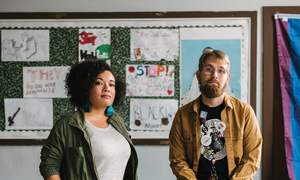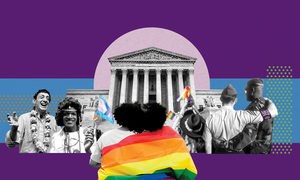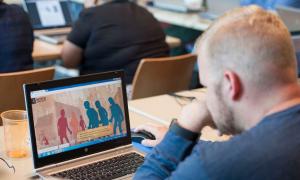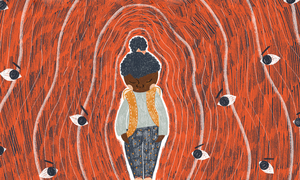Teaching About Voter Suppression and the 2020 Election
Voter suppression is not a thing of the past. It’s essential that students learn to identify it in history—and in this current election cycle. Including insight from Carol Anderson, John Lewis and others, these resources can help you teach about the Voting Rights Act, the historic back-and-forth fight for voting rights, the ways voter suppression manifests today and the ways young people are demanding better of the democratic process.

Teach This: The Voting Rights Act

The True History of Voting Rights

Teach This: Texas Students Fight for Their Right to Vote
Anti-racist Action for White Educators
Too often, educators of color are burdened with leading and supporting anti-racist work in schools and districts—perhaps even more so during COVID-19 and this year’s widespread calls for such work. These resources can help white educators and administrators take action now, carry their fair share of this work and ensure they’re in it for the long haul.

What White Colleagues Need to Understand

Anti-Racist Work in Schools: Are You in it for the Long Haul?

How Can We Build Anti-Racist White Educators?
Celebrate Intersectional LGBTQ History This Month!
October is LGBTQ+ History Month. We hope these resources will help you and your students as you celebrate the diverse identities, experiences and histories of LGBTQ activists—and the continuing fight for LGBTQ equality.

Queer America Podcast

Honoring LGBTQ Voices During Hispanic Heritage Month

Teaching Stonewall
Indigenous Peoples’ Day 2020
Today is Indigenous Peoples’ Day, a holiday still observed as Columbus Day in many states. On this day—and year-round—we hope you’ll commit to teaching the truth about Indigenous history and the experiences of Indigenous peoples. These resources can help.

With and About: Inviting Contemporary American Indian Peoples Into the Classroom

Teaching the Hard History of Indigenous Slavery

Q&A: Native Knowledge 360°
Take Action for Youth Justice
Started by the Campaign for Youth Justice, October is Youth Justice Action Month (YJAM), a time to “raise awareness and inspire action on behalf of young people impacted by our criminal justice system.” These resources explain how the school-to-prison and school-to-deportation pipelines all too often begin in the classroom. And they offer ways educators can interrupt these systems.

Toolkit for "A Teacher's Guide to Rerouting the Pipeline"

The School-to-Deportation Pipeline
